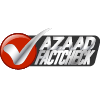WEB DESK: The Renewable Energy Test Center (RETC) has published its much-anticipated annual report on solar panel performance, revealing which manufacturers have achieved top marks in quality, performance, and reliability.
This comprehensive evaluation sheds light on the leading solar panels and companies that excel in the demanding tests.
Reliability: JA Solar, Longi Solar, and Solar Space were recognized as the most reliable solar panels for back sheet ultraviolet durability. The Backsheet Ultraviolet Durability Test (BUDT) measures the extent of damage to the glass caused by ultraviolet rays. The top-performing solar panels showed no signs of back sheet cracking during the test.
Damp Heat Test: Astronergy, ES Foundry, Longi Solar, Runergy, and Trina Solar emerged as leaders in this category. The damp heat test assesses a module’s ability to withstand prolonged exposure to humid and high-temperature environments, with panels enduring temperatures up to 85 degrees Celsius and humidity levels up to 85%.
Read More:Scientists create robot faces using real human skin capable of self-repair
Hail Test: JA Solar and Longi Solar topped the list in the hail test, showcasing their robustness against impact.
Potential Induced Degradation (PID) Test: A large number of companies performed well in this critical test, including Astronergy, ES Foundry, GE PVN, G-Star, JA Solar, Longi Solar, Q Cells, REC Solar, Runergy, SEG Solar, Silfab Solar, Solar Space, Talesun, Trina Solar, VSUN Solar, and Yingli Solar. The PID test evaluates the module’s resilience to potential differences that can cause electricity leakage and loss, leading to the transfer of negative and positive ions.
Mechanical Load Tests: Top performers in the static and dynamic mechanical load tests were Astronergy, ES Foundry, G-Star, JA Solar, Longi Solar, Runergy, Silfab Solar, Solar Space, Trina Solar, and Yingli Solar. These tests subject modules to 1,000 cycles of load at +1,000 Pascals and -1,000 Pascals with a frequency of three to seven cycles per minute, assessing their durability under physical stress.
Thermal Cycling: Astronergy, ES Foundry, G-Star, JA Solar, Longi Solar, Q Cells, Runergy, Solar Space, Trina Solar, and Yingli Solar demonstrated superior performance in thermal cycling, which tests the panels’ ability to withstand extreme temperature variations.
Ultraviolet-Induced Degradation: VSUN Solar and Trina Solar excelled in this test, which measures the panel’s resilience to damage from ultraviolet rays.
Performance: Astronergy, Mission Solar, Q Cells, REC Solar, and Silfab Solar were the top companies in terms of overall performance, highlighting their superior efficiency and energy conversion rates.
Read More:Remote AI jobs with salaries over $100,000 a year
Light-Induced Degradation (LID): Leading the pack in LID, which assesses the long-term effects of light and high temperatures, were Astronergy, G-Star, Jinko Solar, Longi Solar, Runergy, SEG Solar, Silfab Solar, Solar Space, Talesun, Trina Solar, VSUN Solar, Vari, and Yingli Solar.
Solar Panel Performance: In assessing the conversion percentage of solar energy to electrical energy, Axitec Solar, JA Solar, Longi Solar, Meyer Burger, Mission Solar, Q Cells, REC Solar, Silfab Solar, Trina Solar, and Yingli Solar stood out.
PAN Files: The performance parameters of solar panels were highlighted through PAN files, with Astronergy, G-Star, Jinko Solar, Longi Solar, Q Cells, Runergy, Solar Space, Trina Solar, VSUN Solar, and Yingli Solar passing this test.
This year’s report emphasizes the advancements in solar technology and the increasing reliability and efficiency of solar panels. A notable mention is the introduction of solar paint technology, poised to revolutionize the solar industry by potentially replacing traditional solar panels.












